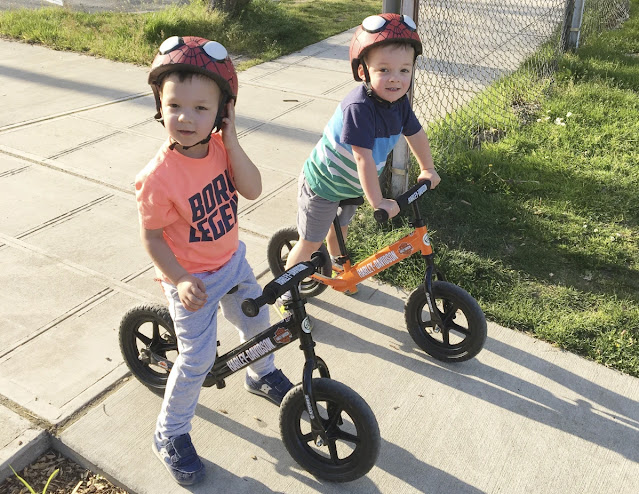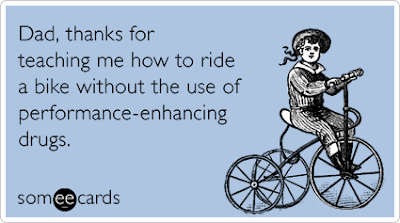I don’t remember when, exactly, I started to ride a bicycle. I would guess, however, that whatever age I was, my first experience with two wheels included training wheels. Until recently, that was how most kids learned to ride.
During the past decade or so, that has changed. More very young children are getting their first cycling experience on “balance bikes.” They are like regular bikes, but smaller and without pedals.
One result is that kids are riding regular bicycles at earlier ages. Some are mounting balance bikes as early as six months old and making the transition to two wheels and two pedals as young as two years old. (Will this give new meaning to “the terrible twos?”)
That means some children are riding regular bikes at an earlier age than people of my generation started on training wheels. And for most of us, the training wheels came off some time between the ages of four and six.
According to researchers, one reason why some babies are ready for a balance bike before their first birthday is that the cerebellum—the part of the brain that controls balance and coordination—typically goes through a growth spurt at six to eight months. And one of the reasons why youngsters who amble along on balance bikes learn to pedal regular bikes at an earlier age is that riding with training wheels doesn’t teach proprioception, the body’s ability to understand where it is in space. That is why a child has to re-learn balance—and is as likely as not to fall—when moving away from training wheels. “You can balance without pedaling, but you can’t pedal without balancing,” says Christian’s Mercé, a sports sciences professor at Portugal’s Santarém Polytechnic University.
She and other researchers stress that children should develop their riding skills at their own pace. Their parents shouldn’t panic if they’re not ready for a regular bike at, say, six years old.
As increasing numbers of children learn how to ride on balance bikes, it will be interesting to see whether and how the next generation of cyclists differs from us.


.jpg)





